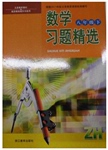��Ŀ����
�ٶ�Ӣ�����Ӣ����ʦҪ��ͬ��֮�以�������ģ���������ͬ�����������ġ�
���й���10�����Դ���ÿ��������������������漰һ�����ʵ����ӡ�ɾ�����ġ�
ɾ�����Ѷ���Ĵ���б�ߣ�\��������
���ӣ���ȱ�ʴ���һ��©�ַ��ţ��ģ������ڸô�����д���üӵĴʡ�
�ģ��ڴ��Ĵ��»�һ���ߣ��ڸô�����д���ĺ�Ĵʡ�
ע�⣺1��ÿ�������ľ�����һ�ʡ�2��ֻ������10�������ߣ���11���𣩲��Ʒ֡�
Dear Diary,
Here I am in the middle of a city, 350 miles far away from our farmhouse. Do you want to know why we move last week? Dad lost his job, and as Mom explained, ��He is lucky to find other one.�� His new job meant I had to say goodbye to my classmate, my school or everything else I love in the world. To make matters bad, now I have to share a room to my younger sister, Maggie. Tomorrow is first day of school. I am very tiring, but I know I��ll never fall asleep.
Good night or remember, you, dear diary, is my only souvenir of my past life and my only friend.
Yours,
Rosemary
 ϰ�⾫ѡϵ�д�
ϰ�⾫ѡϵ�д�


 bring relief to your anxiety. It might even help you avoid a headache or other physical effect of anxiety and stress.
bring relief to your anxiety. It might even help you avoid a headache or other physical effect of anxiety and stress. lease stress because________.
lease stress because________.